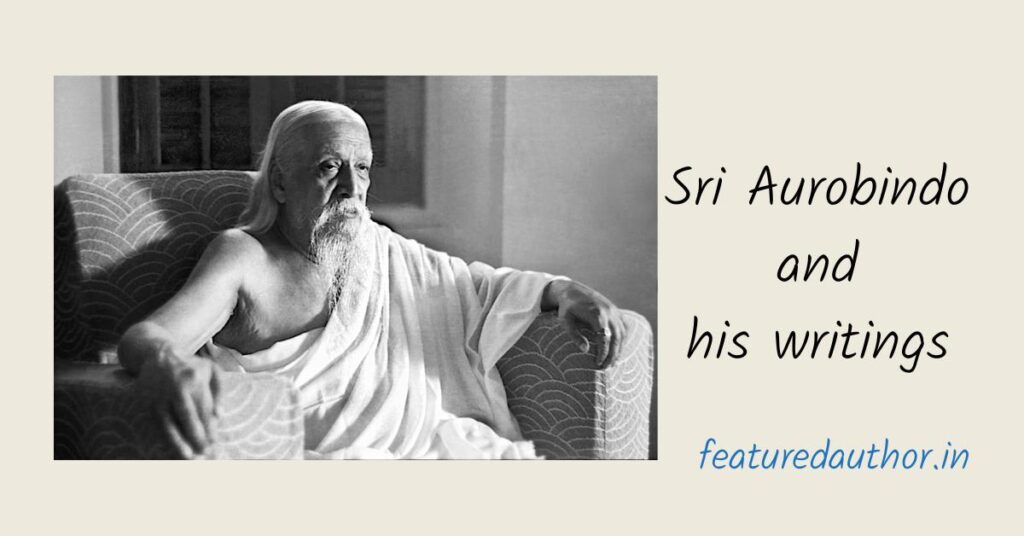Tags: #Indian#Philosophers#Yogis
If one needs to name a writer who represents India and her traditions the best, Sri Aurobindo may be the best-suited one to feature. A philosopher, yogi, and spiritual leader in addition to being a poet, author and intellectual, Sri Aurobindo is best known for his teachings on the integration of the individual consciousness with the universal consciousness, and the realization of a divine life on earth. He produced a distinct corpus of literary works unmatched in quality and (even) volume. Though there are many features that make him distinct from other authors and poets of his age (and further), there are certain key elements anyone who reads him could conveniently notice in his works. In this article, I would like to introduce some distinctive elements of his writings, poetry and prose. Let’s begin with a list.

- Integral Yoga: Sri Aurobindo’s philosophy is centred around the idea of Integral Yoga, which is a comprehensive spiritual practice that aims to bring about the complete transformation of the individual through the integration of all aspects of their being: physical, mental, emotional, and spiritual. Sri Aurobindo believed that human beings can transcend beyond conventional limits and become one with the divine. And integral Yoga can lead one in this pursuit. Therefore, his writings are often filled with methods, benefits, aspects and prospects of the same.
- Evolution of consciousness: The great Indian philosopher did not believe in petty pursuits of life. Sri Aurobindo always believed and emphasised that the evolution of consciousness is the central purpose of life and that this evolution can be accelerated through the practice of yoga and the cultivation of higher states of consciousness. When you start reading him, you will often encounter such ideas, philosophy and belief in his works. Mainly the prose works by Sri Aurobindo are decorated with chapters, paragraphs and articles on this subject.
- The Divine: Sri Aurobindo’s teachings emphasize the presence and potential for divine realization in all aspects of life, and he believed that the ultimate aim of human evolution is the realization of a divine life on earth. Not only that, but he also suggests that one can be one with the divine if the efforts are made with a true heart. He also discusses his personal experiences of such divinity in life.
- The role of the ego: Sri Aurobindo believed that the ego is a necessary aspect of human consciousness, but that it can also be a barrier to spiritual progress if it is not properly integrated with the higher self. His ideas on ego and its role in life were very distinct from others. You will enjoy reading this aspect of his works.
- The role of the mind: Like any other Yogi, Sri Aurobindo believed that the mind has a crucial role to play in the spiritual evolution of the individual. However, his ideas were distinct and peculiar. He said that it must be trained and disciplined in order to be used effectively in the pursuit of higher states of consciousness. He cites examples from ancient Hindu texts to elaborate on this aspect of the role of the mind in human evolution (towards higher consciousness).
- Synthesis of Eastern and Western thought: Sri Aurobindo’s writings synthesize elements of Eastern spiritual traditions, particularly Hinduism and yoga, with Western philosophical and scientific thought. He tries to present to his readers the unique, productive and useful blend of Eastern and Western philosophies more than often. His personal intellect was not limited to the study of either Western or Eastern knowledge. He studied it all and offered the same to his readers and disciples.
There are many other aspects of Sri Aurobindo’s writing that can be argued and discussed. However, these are some that many scholars have traced and debated for a long time. Sri Aurobindo’s produced the most valuable (arguably) corpus of literature by an Indian ever. To understand his works and his writings, one has to study with an open heart to leave space for the extraordinary to be realised and construed. If you study him with a closed conscious, you might disagree and disapprove of much of what Aurobindo wrote and discussed in his talks. However, once you are open to realising, you will experience the magic of this Yogi’s art – of writing and of explaining the divine, the extraordinary and the evolved.
By Agraj for Featured Author